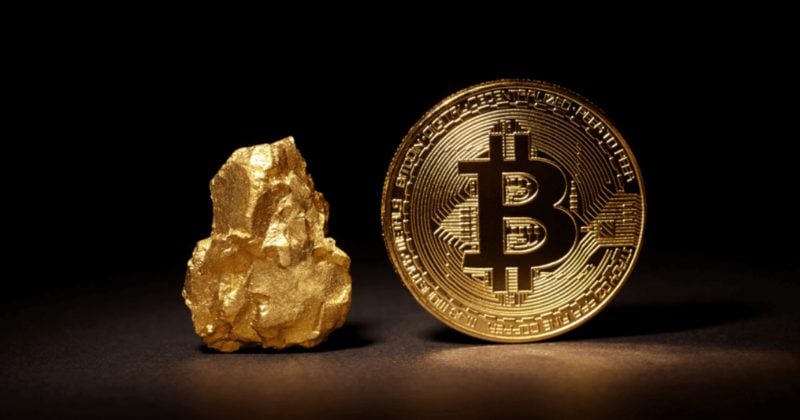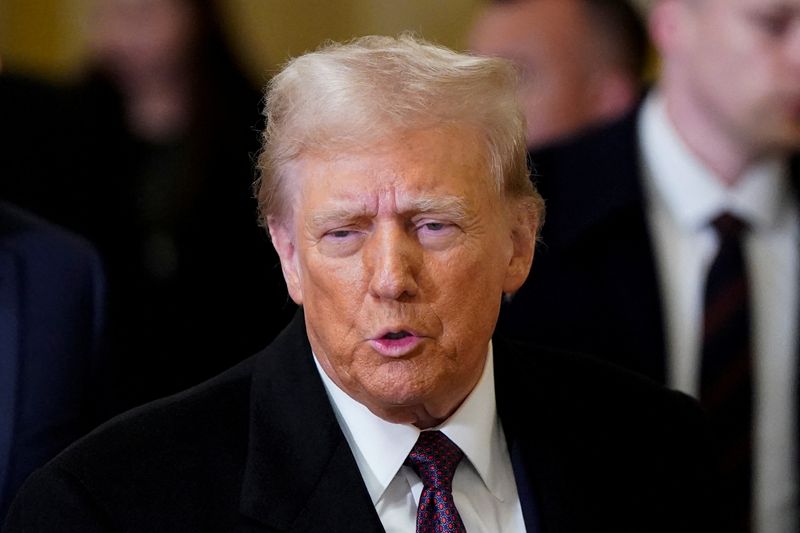Key Takeaways:
I. Macroeconomic instability, including inflation and geopolitical risks, is driving investors towards Bitcoin ETFs.
II. Institutional adoption of Bitcoin ETFs, led by BlackRock, is legitimizing Bitcoin as an asset class.
III. Bitcoin's technical characteristics, such as its fixed supply and decentralized nature, make it a compelling alternative to gold in the digital age.
Bitcoin ETFs have reached a combined AUM of $129 billion, exceeding the $128 billion held by gold ETFs. This milestone marks a significant shift in the investment landscape, raising questions about the future of gold as a safe-haven asset and Bitcoin's potential as a digital gold. BlackRock's iShares Bitcoin Trust leads with $60 billion in assets, surpassing its own Gold Trust in November. This shift coincides with Bitcoin's new all-time high and reflects investor response to geopolitical instability and economic uncertainty. This article analyzes the factors driving this trend, exploring the macroeconomic forces, institutional adoption, and technical aspects of Bitcoin that contribute to its growing appeal. We will also examine the potential risks and opportunities for investors as Bitcoin ETFs take center stage in the world of finance.
Macroeconomic Forces Driving the Shift to Bitcoin ETFs
The global economy is facing a period of unprecedented uncertainty. Inflationary pressures, fueled by expansionary monetary policies and supply chain disruptions, are eroding the purchasing power of fiat currencies. The US, for example, has experienced an average inflation rate of 4.95% over the past four years. This has prompted investors to seek alternative stores of value that are less susceptible to inflationary pressures. Bitcoin, with its fixed supply of 21 million coins, presents a compelling counterpoint to the inflationary tendencies of fiat currencies.
Geopolitical instability is another major factor driving investment towards Bitcoin. The ongoing war in Ukraine, rising tensions between major global powers, and increasing political polarization are creating a climate of uncertainty. Investors are seeking assets that are decoupled from traditional financial systems and less vulnerable to geopolitical risks. Bitcoin, with its decentralized nature and independence from government control, offers a potential safe haven in times of geopolitical turmoil.
Economic uncertainty, exacerbated by the lingering effects of the COVID-19 pandemic, supply chain bottlenecks, and the risk of recession, is further fueling the demand for alternative assets. Investors are increasingly wary of traditional asset classes, which are often highly correlated with economic cycles. Bitcoin, with its relatively low correlation to traditional markets, offers a degree of diversification and risk mitigation. This decoupling from traditional markets makes it an attractive addition to diversified portfolios.
The confluence of these macroeconomic factors – persistent inflation, escalating geopolitical tensions, and pervasive economic uncertainty – has created a perfect storm for the adoption of Bitcoin as a safe-haven asset. The surpassing of gold ETF AUM by Bitcoin ETFs is a clear indication of this shifting investor sentiment. The growth of stablecoins, with a market capitalization exceeding $170 billion in November 2024, further underscores the growing interest in digital assets as a store of value and a hedge against macroeconomic instability.
Institutional Adoption: Fueling the Growth of Bitcoin ETFs
The entry of major financial institutions into the Bitcoin market has been a key catalyst for the growth of Bitcoin ETFs. BlackRock, the world's largest asset manager, launching its iShares Bitcoin Trust is a watershed moment, signaling the mainstream acceptance of Bitcoin as a legitimate investment asset. The trust surpassing BlackRock's own Gold Trust in AUM further underscores the shift in institutional investor preferences.
Bitcoin ETFs provide institutional investors with a regulated and accessible way to gain exposure to Bitcoin. This eliminates the complexities and security concerns associated with direct Bitcoin ownership. The familiarity of the ETF structure, combined with the liquidity and transparency of trading on regulated exchanges, makes Bitcoin ETFs a more palatable investment option for institutions bound by strict regulatory guidelines.
The increasing adoption of Bitcoin by institutional investors is not limited to ETFs. Companies like MicroStrategy have pioneered the strategy of holding Bitcoin as a treasury reserve asset. This has influenced other corporations to follow suit, further legitimizing Bitcoin and accelerating its integration into the mainstream financial system. As of December 2024, MicroStrategy holds 439,000 BTC, worth over $45 billion, demonstrating the growing corporate interest in Bitcoin as a store of value.
Institutional investors strategically accumulated Bitcoin ETF shares throughout Q3 2024, anticipating the potential for further price appreciation. This strategic accumulation, combined with the record-high inflows and minimal outflows observed in November 2024, contributed significantly to the surge in trading volume and the establishment of a new all-time high for Bitcoin. The increasing institutional interest in Bitcoin ETFs is a key driver of the current market momentum.
Bitcoin vs Gold: A Technical and Security Comparison
Bitcoin's digital nature offers distinct advantages over gold in terms of security and accessibility. While gold is susceptible to theft, counterfeiting, and requires physical storage, Bitcoin is secured by cryptography and can be stored and transferred electronically. Its decentralized nature, distributed across a global network of nodes, makes it highly resistant to censorship and single points of failure. The Bitcoin blockchain, a public and immutable ledger, records all transactions transparently and securely, enhancing trust and accountability.
Bitcoin's fixed supply of 21 million coins, embedded in its code, provides a verifiable and predictable scarcity. This contrasts with gold, whose supply can be influenced by mining activities and geopolitical factors. Furthermore, Bitcoin's divisibility and portability make it more practical for transactions in the digital age. While gold requires physical transportation and secure storage, Bitcoin can be transferred instantly and globally with minimal cost. This makes Bitcoin a more efficient and adaptable store of value in an increasingly digital world.
The Future of Finance: Bitcoin, Gold, and the Evolving Investment Landscape
The surpassing of gold ETFs by Bitcoin ETFs in AUM represents a significant milestone in the evolution of finance. While the long-term implications remain uncertain, it is clear that Bitcoin is challenging the traditional role of gold as a safe-haven asset. Investors are increasingly recognizing the potential of digital assets as a hedge against macroeconomic instability and a store of value in the digital age. However, the volatility of Bitcoin and the evolving regulatory landscape require careful consideration. A balanced approach, incorporating both traditional assets like gold and innovative digital assets like Bitcoin, may be the most prudent strategy for navigating the evolving investment landscape.
----------
Further Reads
I. Bitcoin as a Hedge Against Inflation: What It Means for Institutional Investors - Kavinoky Cook, LLP
III. Bitcoin and Geopolitical Rivalry | Geopolitical Monitor









